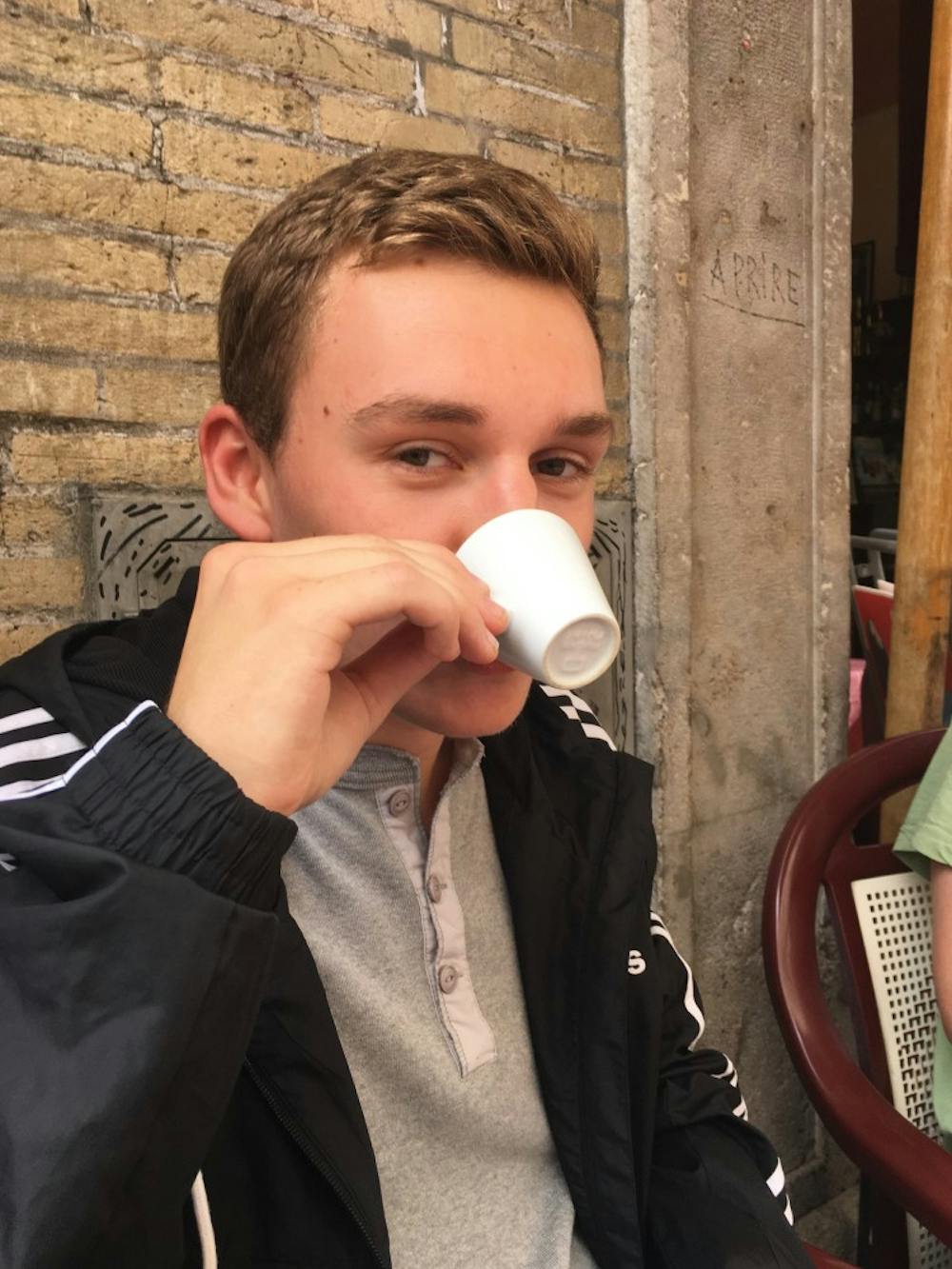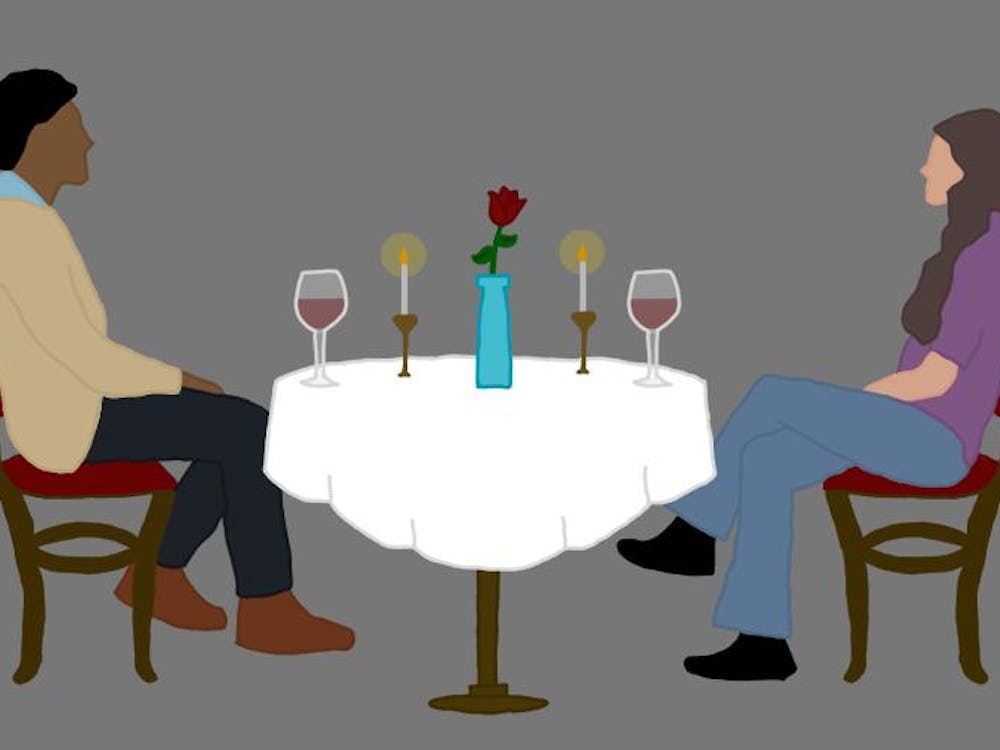Reentering the United States doesn’t make the United States look good. The embarrassment begins in the airport.
“Customers flying to Washington Dulles are encouraged to proceed to the gate early due to additional security measures required by the United States,” the airport’s PA system announced as I strode through the terminal in Paris, my last stop before home.
The United States is the most powerful country in the world, and the only country paranoid enough to subject everyone to additional security. After flying around Europe for three months with about as much fanfare as getting on and off a University Transit System bus, the United States’ special provisions feel like attention-seeking drama from a noisy sibling.
“No! The mashed potatoes and peas cannot touch! Toothpaste can only be in three-ounce-or-less containers!” The extra security isn’t even particularly stringent — a man with a clipboard asked me what I bought for lunch and then waved me through.
The attendant scanned my passport, and I walked towards the plane. The U.S. passport looks like it was designed by a foreigner who learned everything they know about the United States from watching The Colbert Report. The first page is decorated with a giant cartoon bald eagle head.
The eagle looks forward stoically, a gleam in his eye, stars and stripes rippling in front of him. He is a stupidly photogenic eagle — ambitious, athletic, ever-so-slightly smug. If he could talk, he would have a crisp baritone and speak only in platitudes — “Justice. Freedom. Teddy Roosevelt. The Dallas Cowboys.” The eagle reappears on subsequent pages, his head fading into the sky above a mountain rage. Another eagle swoops majestically through the clouds. The United States’ official documents have the same design aesthetic as those Walmart shirts with wolves howling at the moon.
After landing at Dulles nine hours later, everyone from the plane was shepherded into a foyer to wait for shuttles to take us to the baggage claim. A TV played a loop of pictures of Washington, D.C. The Jefferson Memorial flashed on the screen. I always knew that the United States’ monuments were derivative, but after spending a few months in the old world, I was hit by just how kitsch they actually are. We clumsily imposed our own teenage mythology onto gaudy knock-offs of the greatest mythologies in world history. It is painfully obvious that we are compensating for something. One of my favorite facts about the University’s Rotunda is that Southern Methodist University in Dallas has an identical rotunda — the only difference is that theirs is bigger and was built roughly 100 years after ours. The United States is the Southern Methodist University of the world. Go Mustangs!
The United States’ youth is its defining characteristic as a nation, especially when compared with Europe. Italy is a new country in a geopolitical sense — it was only unified in 1861 — but its history and traditions run back to long before the Roman Empire.
In Italy, history is inescapable. When I walked from my apartment to the grocery store this semester, I passed a lodge built for Pope Pius II, a native of Siena who ruled as Pope in the mid-1400s. Siena’s town square, where I spent warm fall nights lounging with friends, was built in the early 1300s. The shower in my apartment was installed in 1257, which explains why it took so long for the water to get hot.
This long and proud history still affects modern Italian life. Italian culture, even in the 21st century, remains fundamentally resistant to the new. This resistance informs every part of their culture, from the type of food they eat, to the music they listen to, to the way they treat immigrants. The routine can be comforting. There is deep joy to be found in eating the same salami as your great-great-great-grandparents. Italians are so confident in their culture that they are totally uninterested in changing anything, and that confidence is admirable.
At the same time, constant reverence for the past can become stifling. For much of my semester abroad, I felt the subtle dissonance of being young and free in a civilization that is very old and set in its ways. To enjoy Italy meant to conform with Italy. The ancient streets, just by virtue of their age and beauty, exerted a pressure — to be fashionable, to go slow, to do things as they have always been done. Singing in the streets felt disrespectful. Bouncing a basketball felt sacrilegious. I love the architecture of Italy — the intricate stonework, the winding streets, the intimacy of small houses tumbling together down a hillside.
After four months, part of me wanted to tear it all down and throw up some blue glass and brushed steel. Just to switch things up. Just to show that I could. That irreverent instinct has lead America astray plenty of times over the years, but it’s at the core of what makes us different from Europeans.
I never expected to feel that way. I generally think of myself as a historically-minded person. I work in the University Archives. My parents are history professors. I totally love “Night at the Museum.” But after seeing my 400,000th medieval alleyway, I found myself appreciating the dynamism of American culture. Don’t get me wrong, America is a hot mess right now. We could sorely use some European dignity and reverence. But despite all our problems, we still have the best music in the world. We make the best movies. We have the best ethnic food restaurants.
I’m serious about the food — Charlottesville and Siena have about the same population. In all of Siena there are three kebab places, one Chinese restaurant and Ravioli Wang, the inimitable Asian dumpling shop. The name is funny, but if you had to explain a pot sticker to an Italian, ravioli isn’t a bad place to start. Every other restaurant in town is Italian.
However, in Charlottesville, the Downtown Mall alone has American, Italian, French, Spanish, Mexican, Turkish, Thai, Japanese, Chinese and even “Himalayan Fusion,” whatever that means. From a European perspective, the United States seems like an outsize, absurdist caricature of a country, overflowing with sound and fury. In many ways that characterization is spot on — but I’ve heard some Italian pop music this semester, and let me tell you, American sound is a whole lot better than anyone else’s.
On my second night back in Charlottesville, I got into my family’s Subaru and picked up my friend Paul. Paul is five-foot-seven, a soccer freak, currently working on growing out a thick, black beard. His grandparents immigrated from Argentina. From there we went and picked up Stefan. Stefan — emphasis on the first syllable — is six-foot-five and slim with a shock of bright red hair. His dad immigrated from Sweden. Then we met up with Stefan — emphasis on the second syllable. Stefan is broad shouldered and hirsute. He was born in Serbia and still speaks with just a hint of a Slavic cadence. We went to our favorite restaurant in town, El Puerto, a greasy hole-in-the-wall Mexican place where the waiters greet you in Spanish.
I love Michelangelo. I love Chianti wine. I love tiny coffees. Italy is a beautiful country. I will dearly miss its venerable churches and hallowed hills and peculiar traditions, and I know for certain that I will return there someday. At the same time, it’s a weight off my shoulders to be back in a place where the streets weren’t built for saints or popes or mythical demigods. We settled into our seats, and soon the waiter delivered our heaping plates of tacos, enchiladas, rice and refried beans. In that moment, I could have sworn I heard a sound in the distance. A screech — faint, echoing. I felt sure that had I been able to see the moon, the silhouette of a stupidly photogenic bald eagle would have crossed in front of it.
“Justice,” he would have said between screeches. “Freedom. Teddy Roosevelt. The Dallas Cowboys.”







